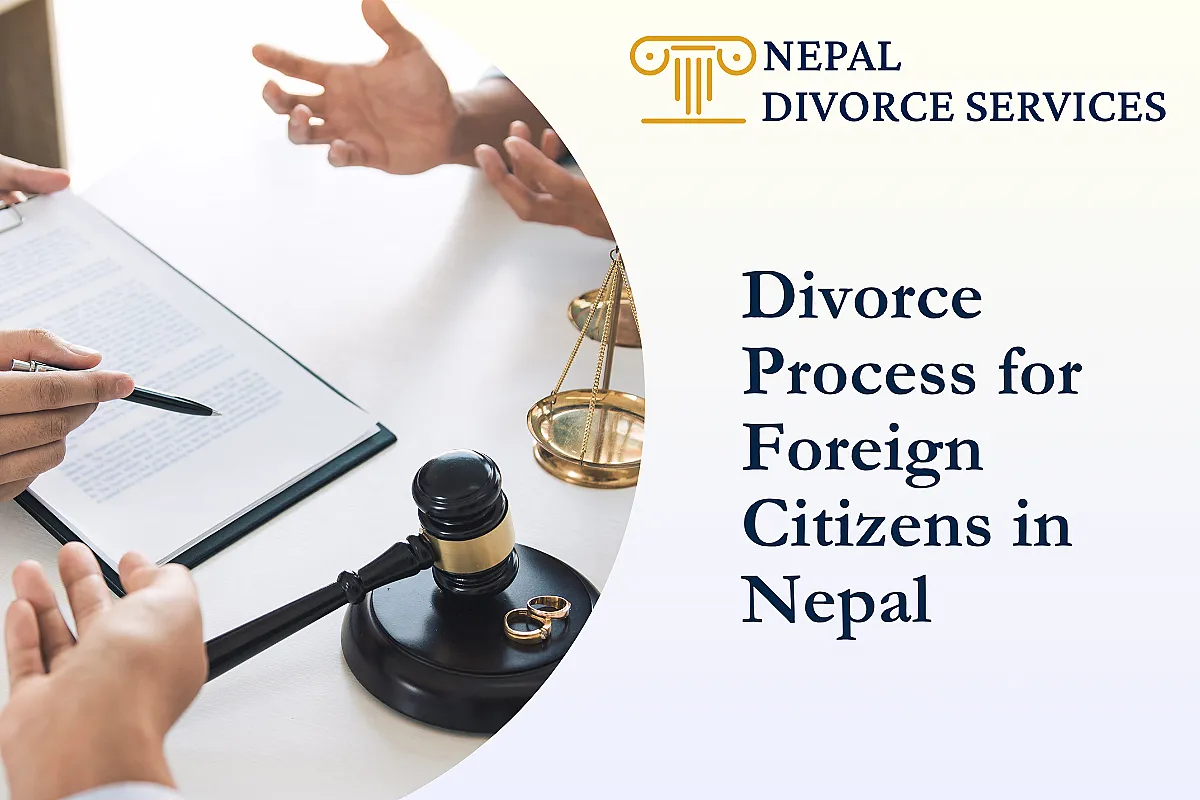Tag : Family Law Attorney
Why divorce is good instead leaving in bad relationship
Divorce is often viewed negatively, but it can offer a chance for healing, happiness, and a fresh start. Learn how divorce can be a better option than remaining in a bad relationship. Discover the advantages of ending an unhappy marriage and how Nepal Divorce Services can guide you through the process with the new divorce law in Nepal 2074.
5 Tips for Finding the Best Divorce Lawyer
Divorce can be a stressful and emotional experience, and finding the right lawyer to guide you through the process is essential. But with so many divorce lawyers out there, how do you know which one is the right fit for you? Here are five tips to help you find the best divorce lawyer for your needs:
A Step-by-Step Guide to Filing for Divorce in Nepal
Divorce can be a complicated and emotional process, but knowing the steps involved can help make the process smoother. If you're considering filing for divorce in Nepal, this guide will provide you with a step-by-step process to follow.
Understanding Attorney-Client Privilege
This article explains attorney-client privilege, its purpose, and the exceptions to this important legal concept, ensuring you understand how to communicate confidently with your attorney.
How to Become a Lawyer: A Step-by-Step Guide
Becoming a lawyer is a dream for many people who are interested in the legal field. In Nepal, the process of becoming a lawyer involves a series of steps, including academic qualifications, legal training, and professional experience. In this article, we will provide a comprehensive guide on how to become a lawyer in Nepal.
All You Need to Know About Divorce by Mutual Consent
Divorce by mutual consent is a straightforward and efficient option for couples in Nepal wishing to end their marriage amicably. Governed by Article 93 of the Civil Code 2074, this process allows couples to file a joint petition, making it a popular choice among younger generations. While it offers significant advantages such as a quick resolution and lower costs, it is essential to consider property rights and the necessity for mutual agreement on various terms. This guide provides a comprehensive overview of the mutual consent divorce process, including legal grounds, advantages, disadvantages, and the relevant legal framework, ensuring you are well-informed for your journey.
Divorce In Nepal: Everything You Need to Know
Divorce in Nepal is a legal procedure governed by the Marriage Registration Act, 2028 (1971). This article outlines the grounds for divorce, the step-by-step process, and the legal requirements necessary to navigate divorce in Nepal. As divorce becomes more common, especially in urban areas, understanding these details is crucial for anyone considering ending their marriage.
Child Custody After Divorce in Nepal: Legal Provisions and Essential Information
Navigating child custody in Nepal can be complex, especially during divorce. This guide provides an overview of the legal framework established by the Muluki Civil Code 2074, outlining key considerations like the best interests of the child, age-based presumptions, financial responsibilities, and visitation rights. Empower yourself with the knowledge needed to make informed decisions for your family's well-being.
Divorce Procedure in Nepal
This article provides a comprehensive guide to the divorce procedure in Nepal, including key legal grounds for divorce such as adultery, cruelty, and irretrievable breakdown of marriage. It walks readers through the step-by-step process, from consulting a divorce lawyer to filing a petition, mediation, and final court hearings. The article also covers child custody and property division laws in Nepal, offering practical advice on navigating the legal system with professional support.
Divorce Process for International Couples in Nepal
Divorce is a legal process that dissolves a marriage contract between two individuals. When it comes to international couples, the divorce process can be more complex due to differences in laws and regulations. Nepal, being a popular destination for international couples, has its own set of rules and regulations for divorce proceedings. In this article, we will discuss the divorce process for international couples in Nepal.
Conditions for Husband to file Divorce in Nepal
Divorce is the legal termination of a marriage relationship between two spouses. In Nepal, divorce is governed by the Muluki Civil Code 2074, which provides the provisions and procedures for divorce in Chapter Three. There are two types of divorce in Nepal: divorce by mutual consent and divorce by court order.
How to File for Divorce in Nepal: A Complete Guide
Divorce is the legal termination of a marriage relationship between two spouses. It can be a difficult and stressful process that involves emotional, financial and legal aspects. In Nepal, there are two ways to get a divorce: with mutual consent or by court order. In this article, we will explain the complete process of filing for divorce in Nepal, the documents required, the time duration, and some frequently asked questions.
How to Choose the Right Lawyer for Your Case
If you are facing a legal issue or dispute, you may need to hire a lawyer to represent your interests and help you achieve a favorable outcome. However, finding the right lawyer for your case can be a daunting task, especially if you are not familiar with the legal system or the different types of lawyers available. How do you know which lawyer is qualified, experienced, and trustworthy? How do you compare different lawyers and their fees? How do you communicate effectively with your lawyer and ensure that they understand your goals and expectations?
How to Get a Quick and Easy Divorce in Nepal
Divorce is the legal termination of a marriage relationship between two spouses. It can be a stressful and complicated process that involves various legal and emotional issues. However, if you are looking for a quick and easy divorce in Nepal, you may want to consider Nepal Divorce Services, a professional and reliable service provider that can help you get a divorce with mutual consent.
What are the effects of divorce on children in Nepal?
Divorce can have various effects on children in Nepal, such as shock, anger, sadness, anxiety, guilt, behavioral problems, emotional problems, social problems, legal problems, adaptability, empathy, and growth. Learn how to help your children cope with divorce in Nepal with this comprehensive guide from Nepal Divorce Services.
Navigating Divorce in Nepal: A Guide to Healing and Legal Process
Going through a divorce in Nepal? This comprehensive guide by Nepal Divorce Services, a leading family law firm, explores the emotional impact, legal landscape (including Power of Attorney for remote participation), and resources for healing. Learn how to navigate this challenging time and build a fulfilling future.
Divorce of Nepali Residents in Foreign Countries
International divorce is becoming increasingly common. This can happen when a couple marries in one country but then resides in another country when they decide to divorce. Or, it can happen when one spouse is a citizen of one country and the other spouse is a citizen of another country.
Family Law Matters in Nepal
Family Law Matters in Nepal is a broad topic that covers various issues and aspects of family relations and domestic affairs. According to my search, family law in Nepal is mainly governed by Part 3 of the Muluki Civil Code 2017, which sets out the legal provisions on matters such as marriage, divorce, partition of property, succession, adoption, child custody, alimony, etc. However, family law in Nepal is also influenced by other sources of law, such as the Constitution of Nepal, the National Civil Procedure (Code) Act 2017, and the customary laws and practices of different ethnic and religious groups.
Real Estate Law in Nepal
Real estate law in Nepal is a complex and diverse topic that covers various issues and aspects of property rights, transactions, and disputes. This article provides an overview of the main issues and aspects of real estate law in Nepal, such as ownership, transfer, valuation, and dispute resolution. It also discusses the sources and authorities of real estate law in Nepal, such as the Constitution of Nepal, statutory laws, customary laws, and judicial decisions. These sources and authorities provide the legal basis and principles for the regulation and administration of property rights, transactions, and disputes in Nepal. The article also addresses the challenges and problems related to real estate law in Nepal, such as lack of proper documentation, registration, measurement, valuation, management, maintenance, awareness, education, coordination, cooperation, transparency, accountability, access, affordability, capacity, competency, enforcement, and implementation. It also suggests some possible solutions and recommendations to overcome these challenges and problems, and to ensure the protection, promotion, and fulfillment of the real estate law in Nepal.
High Courts of Nepal
The High Court of Nepal is the second highest court in Nepal and the first appellate court for most of the cases in the country. The High Court also has original jurisdiction over some types of cases. The High Court plays an important role in ensuring justice, protecting fundamental rights, and interpreting laws in Nepal. In this article, we will explore the history, composition, jurisdiction, procedure, and functions of the High Court of Nepal.
District Courts Of Nepal
The District Court of Nepal is the lowest level of court in Nepal and the first instance court for most of the cases in the country. The District Court has original jurisdiction over civil and criminal matters, as well as some other matters as prescribed by law. The District Court also hears appeals from the judicial committees of the local levels, which are the lowest level of judicial bodies in Nepal. The District Court plays an important role in providing access to justice, resolving disputes, and maintaining law and order in Nepal. In this article, we will explore the history, composition, jurisdiction, procedure, and functions of the District Court of Nepal.
5 Reasons to Hire a Top Lawyer in Nepal for Your Legal Issue
If you are facing a legal issue in Nepal, whether it is a civil, criminal, family, business, or any other matter, you may be wondering whether you need to hire a lawyer or not. While some legal issues can be resolved without the help of a lawyer, such as minor disputes or simple transactions, others may require the expertise and guidance of a professional legal representative. Hiring a top lawyer in Nepal can make a significant difference in the outcome of your case and protect your rights and interests. Here are five reasons why you should hire a top lawyer in Nepal for your legal issue:
What You Need to Know About the New Divorce Law in Nepal (2084)
Divorce is the legal end of marriage that allows the spouses to marry again. In Nepal, divorce is governed by the Muluki Civil Code 2074, which came into effect on 17 August 2017 (2074). The new divorce law has introduced some changes and improvements to the previous legal provisions of Nepal regarding divorce. Divorce used to be informal in ancient times. The wife could simply leave her husband's house with her dowry and get divorced. There was no need to go to court like now. The formal legal process of divorce was started by Jung Bahadur in 1910 BS. At that time, only the wife could file for divorce. The new divorce law has opened the door for the husband to file for divorce as well.
Power of attorney (POA) in Nepal
Power of attorney is a legal document that allows you to appoint someone to act on your behalf in certain matters. It can be very useful in situations where you are unable to handle your own affairs, such as when you are living abroad or going through a divorce. However, it is also a serious responsibility that requires careful consideration and drafting. Nepal Divorce Services can assist you with any power of attorney issues related to divorce and family law in Nepal. Contact us today for a free consultation and find out how we can help you.
Best Divorce Lawyer in Nepal
Divorce is a difficult and stressful process that can affect not only the spouses but also their children, families, and friends. Divorce can also have legal, financial, and emotional consequences that can last for a long time. Therefore, it is important to have the best divorce lawyer in Nepal to guide you through the divorce process and protect your rights and interests.
The role of lawyers and courts in divorce disputes in Nepal
Divorce is the legal dissolution of marriage between a husband and a wife. Divorce can be a complex and contentious process that involves various legal issues such as grounds for divorce, alimony, child custody, child support, property division, and debt allocation. Therefore, the role of lawyers and courts in divorce disputes in Nepal is crucial to ensure that the rights and interests of both parties are protected and that the divorce is fair and reasonable.
Divorce in Nepal: A Women's Perspective
Divorce is the legal termination of marriage between a husband and a wife. Divorce can have various legal, social, and emotional implications for both parties, especially for women in Nepal. In this article, we will explore the challenges and opportunities for women's rights in divorce proceedings in Nepal.
How to file for divorce in Nepal: A step-by-step guide
Divorce is the legal termination of marriage between a husband and a wife. Divorce can have various legal, social, and emotional implications for both parties. In Nepal, divorce is regulated by the Civil Code 2074 (2017), which provides two ways to obtain a divorce: by mutual consent or by filing a case in the district court.
New Divorce Process in Nepal (2026) – Easy Guide to all the Latest Provisions
Divorce is the legal termination of a marriage between two spouses. It can be a difficult and stressful process, especially when there are disputes over property, custody, alimony, or other issues. However, the divorce process in Nepal has been simplified and updated by the new Civil Code 2074 (2017), which came into effect from 1st Shrawan 2075 (17th July 2018). This article will provide you with an easy guide to all the latest provisions of the divorce process in Nepal.
Divorce Process for Foreign Citizens in Nepal
This article provides a detailed overview of the divorce process for foreign nationals in Nepal, highlighting key steps like residency criteria, petition filing, and court procedures. It also addresses specific concerns such as asset division, child custody, and spousal support. Whether both or one of the spouses is a foreign national, the article outlines how to navigate Nepal's legal system with the help of experienced divorce attorneys. The importance of legal representation and ensuring that the divorce is recognized internationally is also discussed.
Divorce Process in Nepal: New Divorce Law in Nepal (2026)
Navigating divorce process in Nepal requires understanding new legal updates, including changes in the 2081 Civil Code. Nepal Divorce Services provides expert support through every step, from filing to final court decisions. Whether it’s mutual consent or contested divorce, we guide you on rights, property division, and alimony entitlements, ensuring you’re prepared and informed. Protect your rights with professional legal advice and a clear, efficient process.



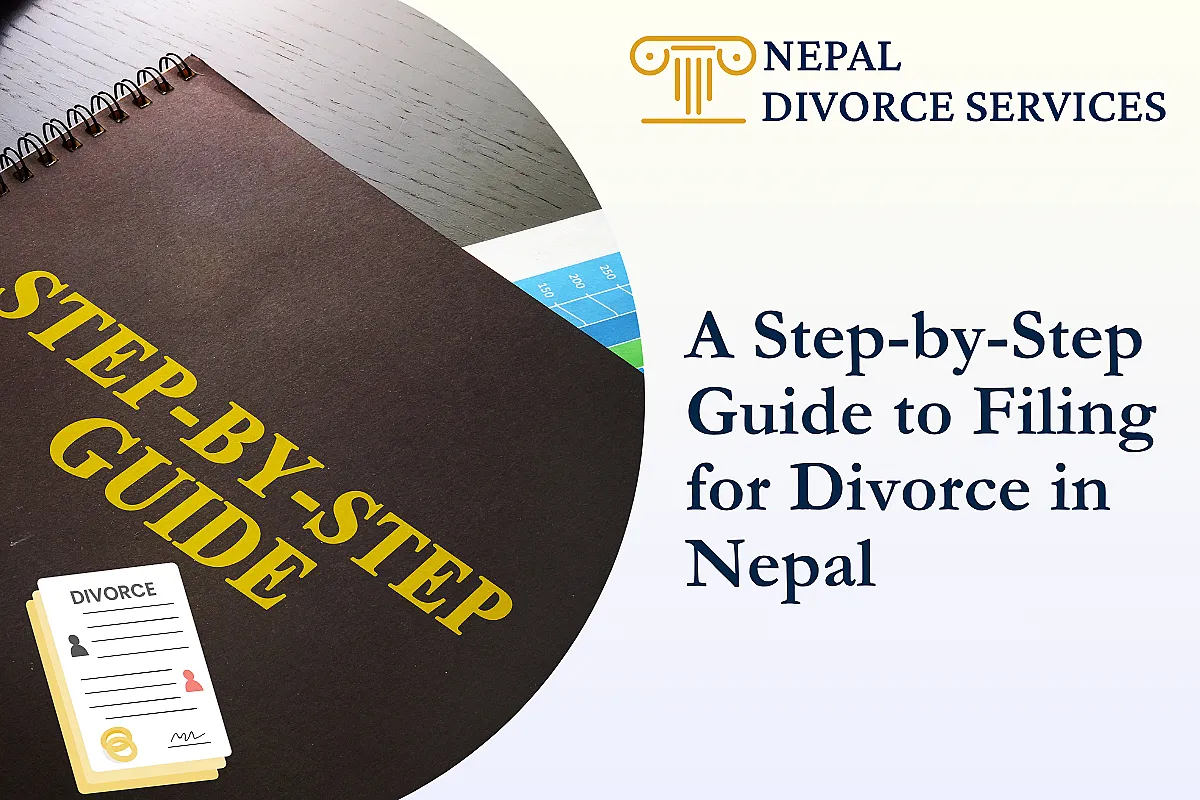



-medium.webp)
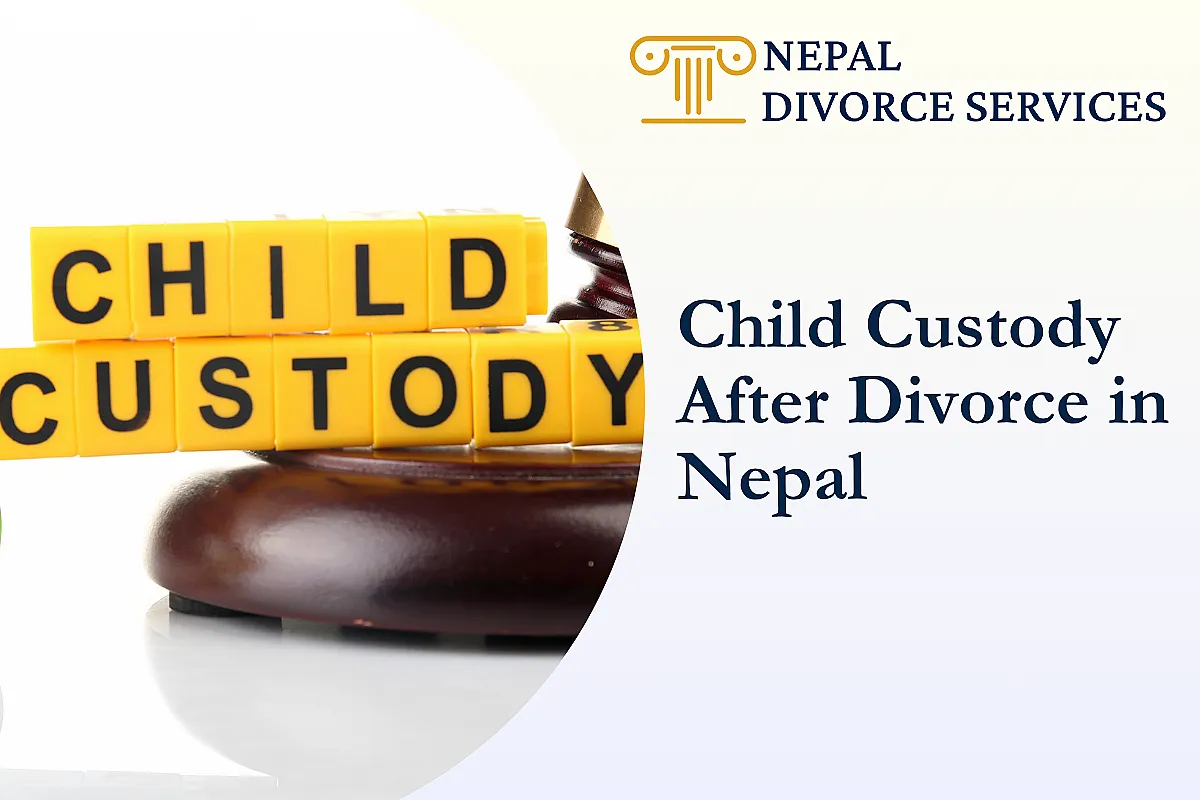
-medium.webp)

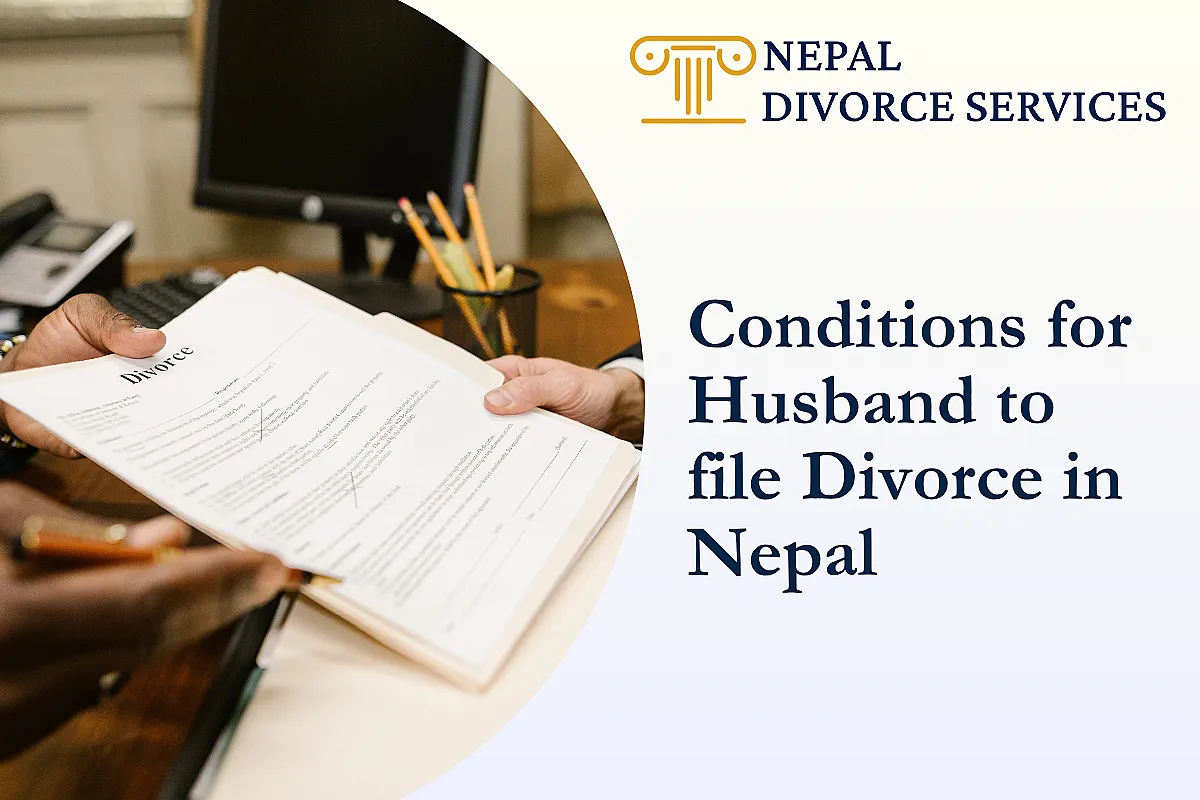





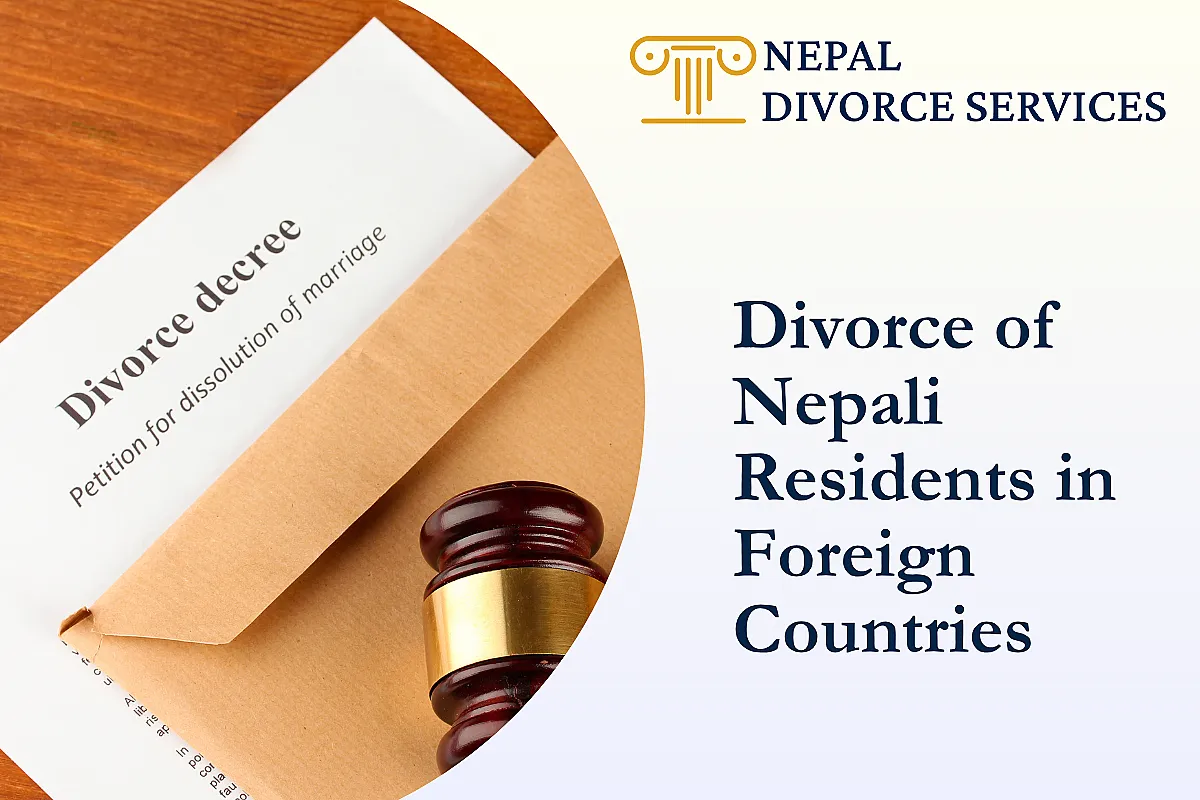
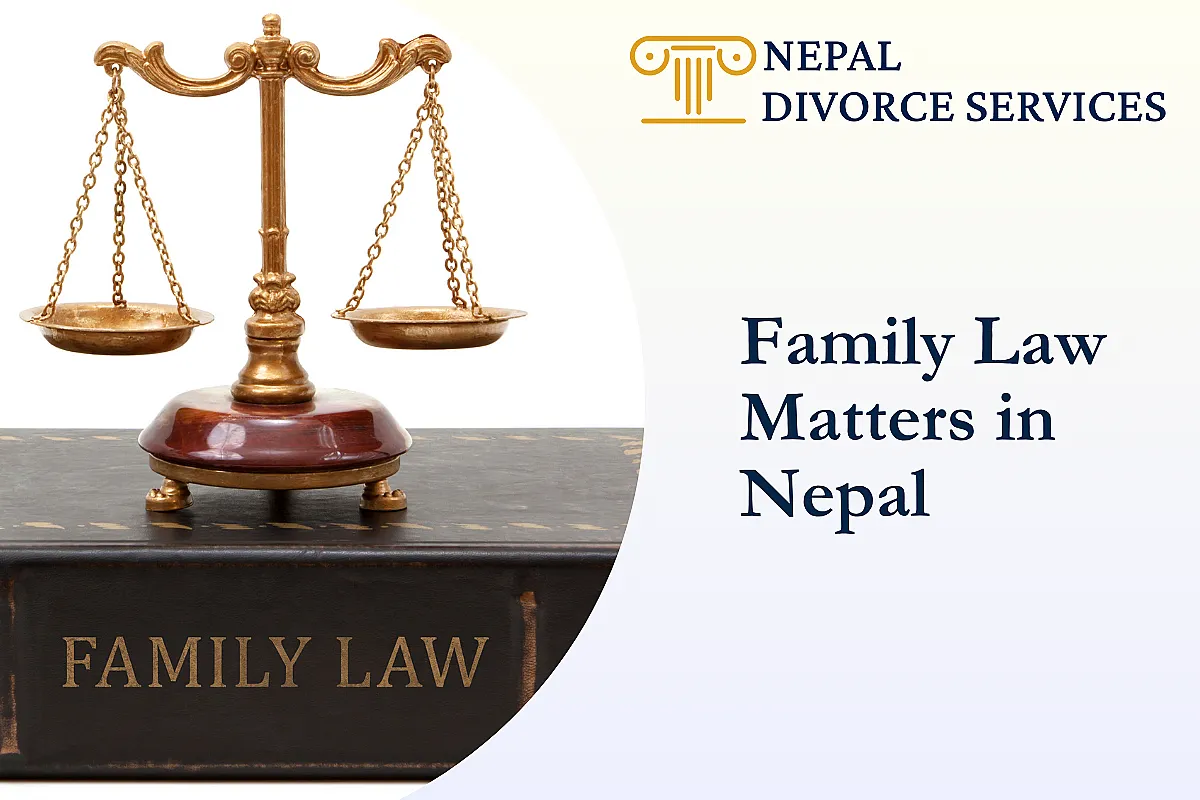

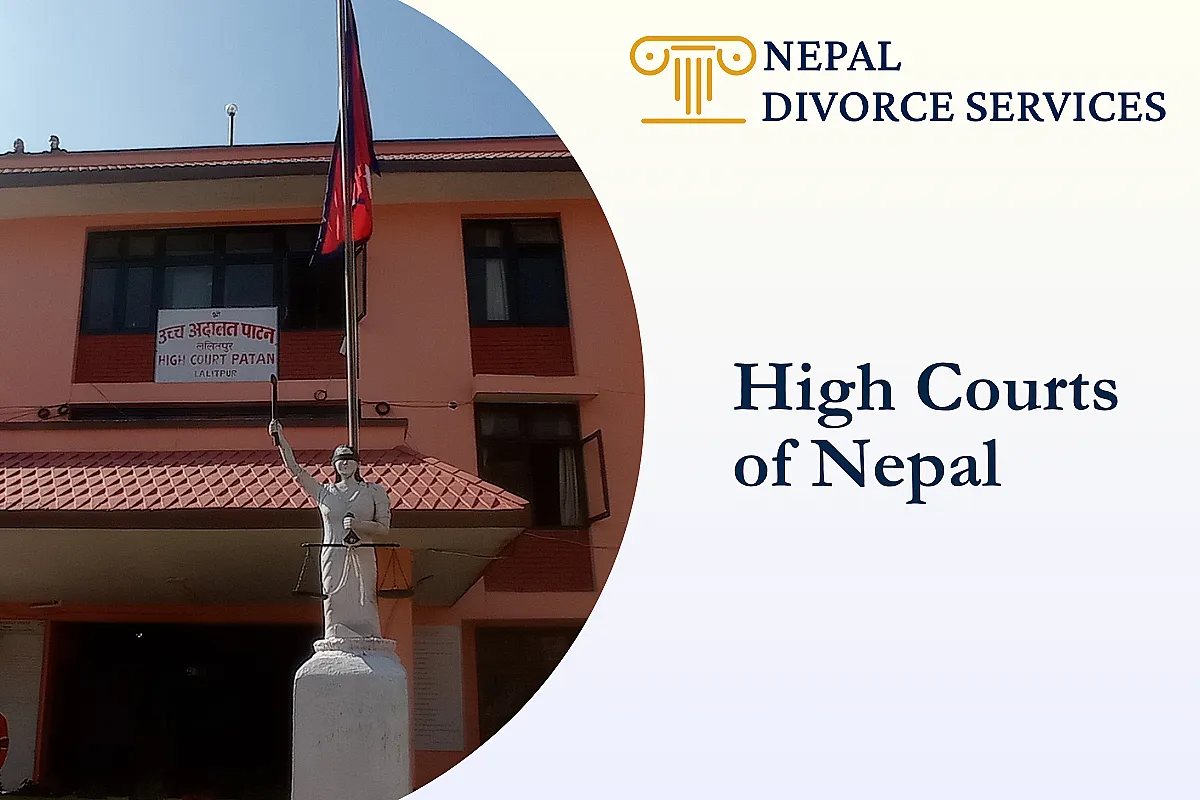
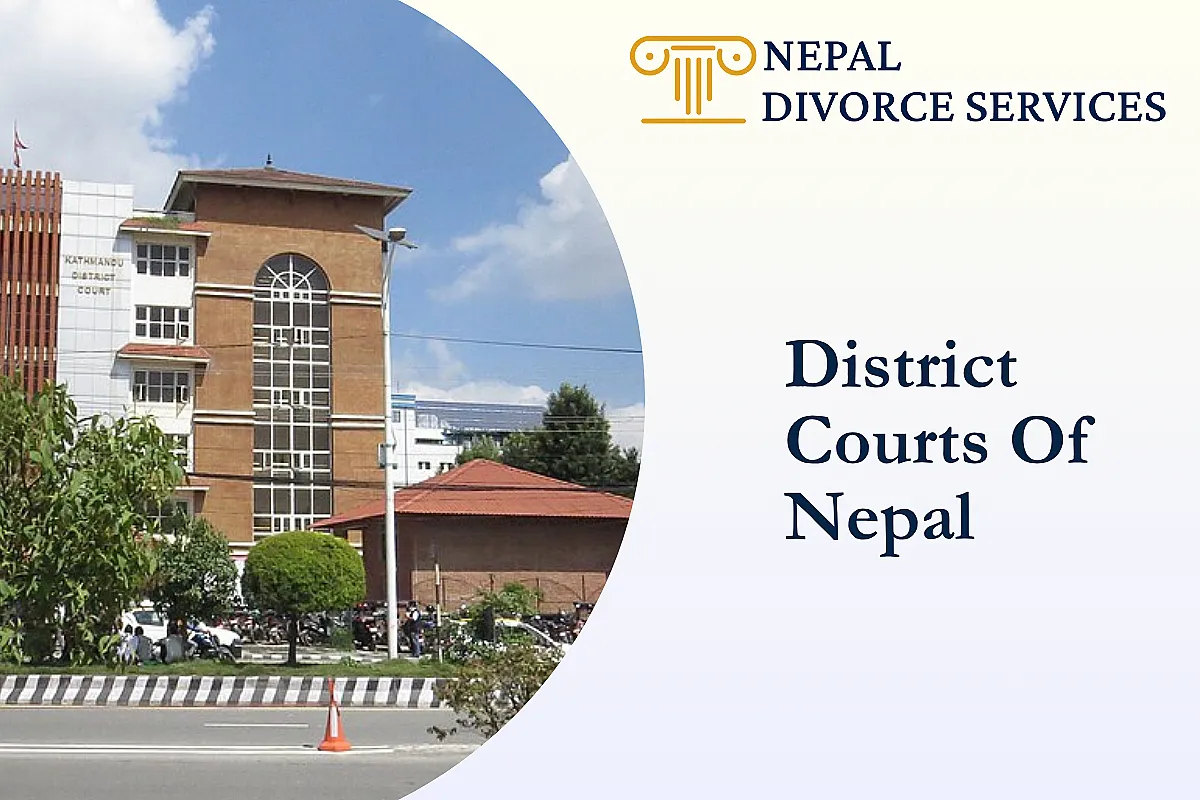

-medium.webp)
-in-Nepal-medium.webp)

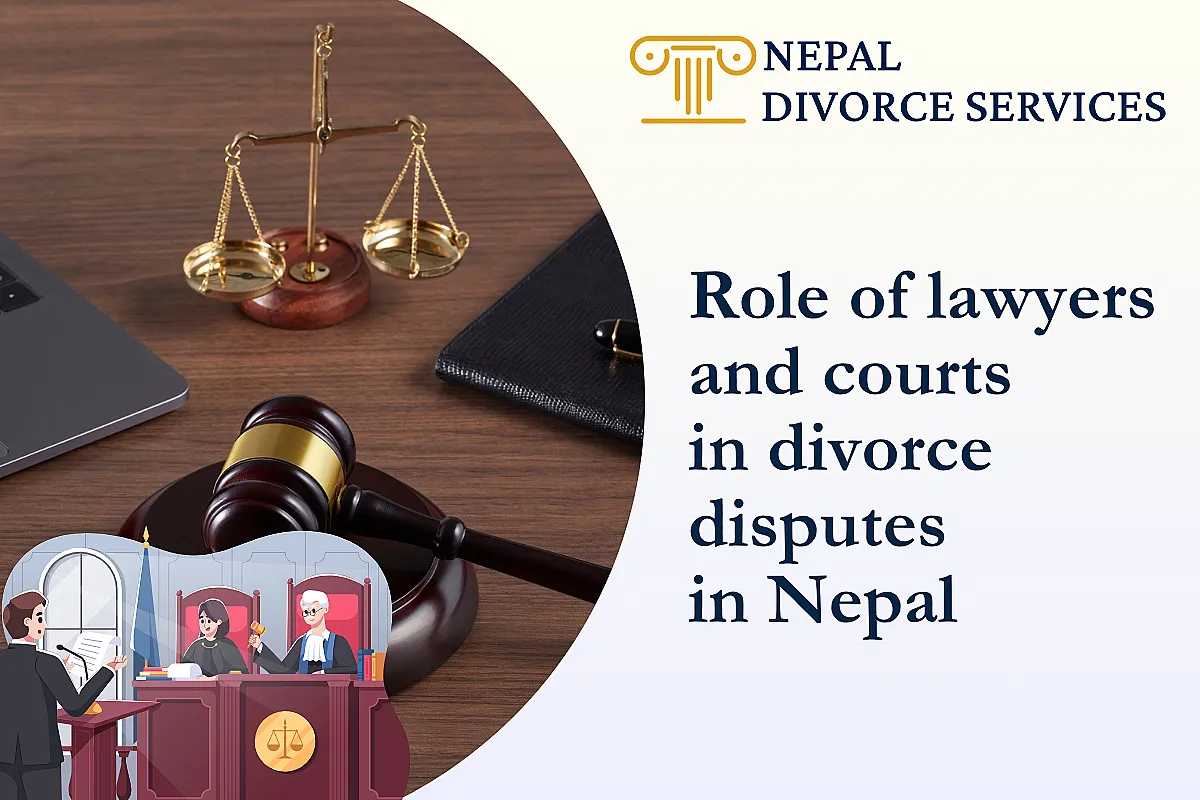
-medium.webp)
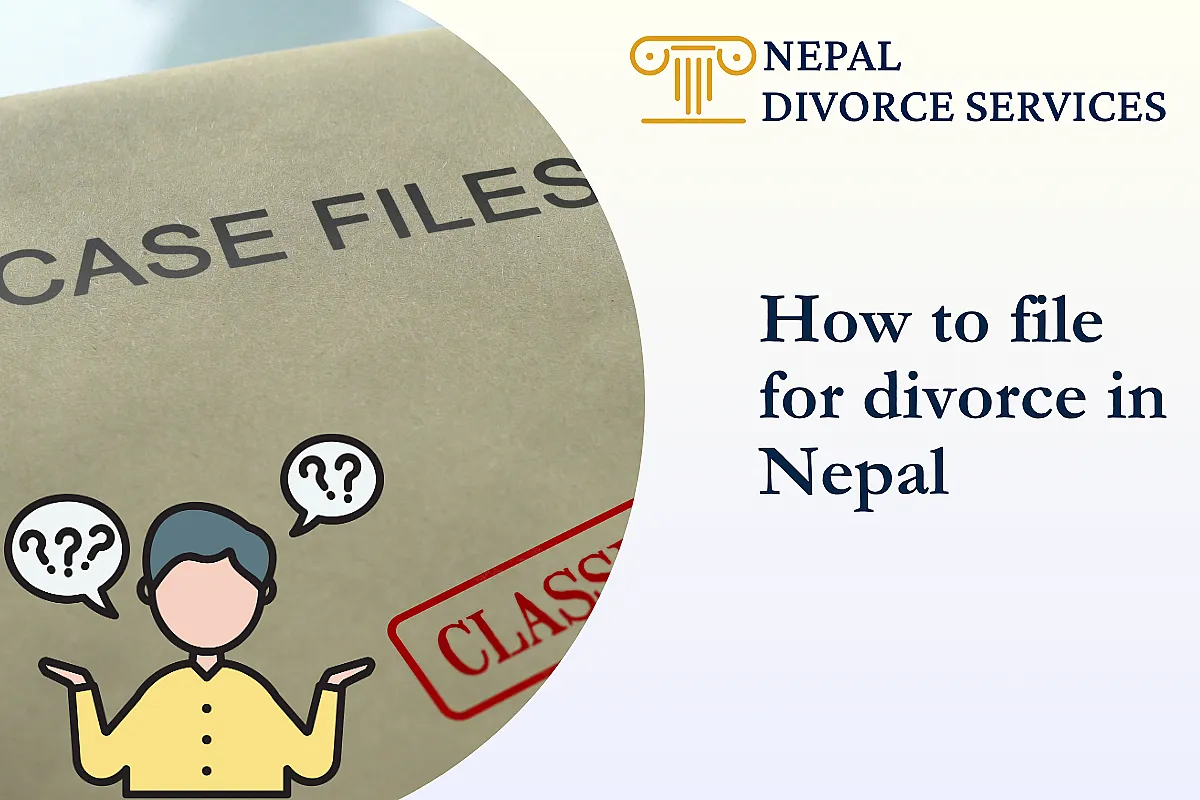
-–-Easy-Guide-to-all-the-Latest-Provisions-medium.webp)
